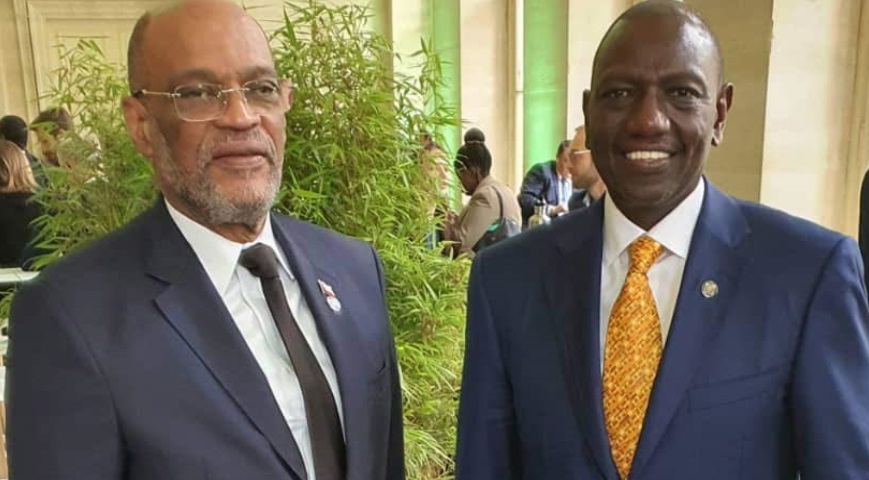Haitian Prime Minister Ariel Henry is scheduled to travel to Nairobi to address concerns hindering the deployment of 1,000 police officers aimed at restoring peace in his country.
As of Sunday, February 25, the Haitian Prime Minister's Office disclosed that Henry plans to visit Kenya following his participation in the 46th Ordinary Meeting of the Caribbean Community (CARICOM) Heads of State and Government held in Guyana.
"This Sunday, February 25, Prime Minister Dr Ariel Henry left the capital for Georgetown, Guyana, to attend the 46th Ordinary Meeting of the CARICOM Heads of State and Government which will be held from February 25-28, 2024," the statement reads in part.
"Next, the Prime Minister will travel to Nairobi, Kenya, to finalise modalities for the deployment of the MSS with Kenyan authorities and those of other countries in the African continent."
The arrangement entails his meeting with the Kenyan team to engage in discussions and finalize agreements in preparation for the intended deployment of the team to Haiti.
Did you read this?
It's noteworthy that a Haitian delegation had conducted a fact-finding mission in Kenya last year.
In a related development, it has been revealed that Benin has volunteered to contribute 2,000 troops to the UN-approved multinational security force led by Kenya, which is poised to be deployed to combat gang violence in Haiti.
On Monday, the United States Ambassador to the UN, Linda Thomas-Greenfield, disclosed the announcement during a press briefing in Georgetown. Ms. Thomas-Greenfield mentioned that she had engaged in discussions with Haiti's Prime Minister Ariel Henry and other partners regarding "the urgency of deploying" the multinational force.
"This mission is key to helping the Haitian National Police restore peace and security, enabling free and fair elections, and alleviating the humanitarian crisis," Ms Thomas-Greenfield said.
Initially scheduled for this month, the deployment faced a delay as a Kenyan court blocked it in January. The court contended that the government lacked the authority to send police officers beyond Kenya's borders.
Following the ruling, President William Ruto promptly assured that Kenya would proceed with sending the police officers after fulfilling the necessary paperwork to meet the court's requirements.
A US statement issued on the sidelines of the G20 summit in Rio de Janeiro last week had announced "financial, personnel, and in-kind commitments to the mission" from Benin, France and Canada, the latter of which later announced 80.5 million Canadian dollars ($60 million) for the mission.
The US has committed $200 million and pledged to boost efforts to stem the flow of illicit arms to the Caribbean region.
The UN estimates firearms held by Haitian gangs are largely smuggled from the United States.
This is after Haiti’s government announced on February 14 that it is working on an official agreement with Kenyan officials to secure the long-awaited deployment of a police force from Nairobi.
Officials from Kenya and Haiti met in the U.S. to set a deadline for the arrival of Kenyan forces as well as drafting a memorandum of understanding, officials said.
Heading the Kenyan delegation was Joseph Boinnet, the former Inspector General of Police and Deputy National Security Adviser to Ruto.
The setback in deployment occurred subsequent to the high court's intervention on January 26, blocking the UN-backed mission. Ariel Henry had initially requested security deployment in October 2022, and it only received approval from the UN Security Council a year later.
Amidst his tenure, Henry has encountered widespread protests demanding his resignation, with the country grappling with persistent gang violence.









